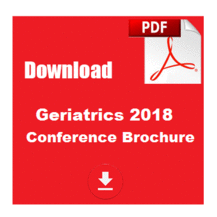
Sok An
Korea Rural Economic Institute, South Korea
Title: The role of social capital in the relationship between physical constraint and mental distress in older adults: A latent interaction model
Biography
Biography: Sok An
Abstract
Research shows that individual social resources such as social networks and support from family and friends improve individual health and buffer the negative impact of chronic stress. Yet, few studies have examined the protective role of community social capital in improving older adults’ mental health. This study highlights community social capital as a critical coping resource for older adults with physical constraints. Building upon the previous literature on the link between physical and mental health in later life, the present study explored the buffering effects of community social capital (indicated by social cohesion, social ties, and safety) in the relationship between physical constraints (indicated by chronic disease and functional disability) and mental distress (indicated by depression and anxiety). Using data from 2,362 community-dwelling older adults aged 65 and older in the National Social Life, Health, and Aging Project (NSHAP) Wave 2, a latent moderated structural equation modeling was tested. The fit of the model including both direct effects of physical burden and social capital and their latent interaction was excellent. Both physical constraints (β =0.382, p <0.001) and community social capital (β =-0.059, p< 0.01) had a direct effect on mental distress, and their interaction was also found to be significant (β = -0.306, p < 0.001). The group with high social capital presented a relatively stable slope in the prediction of physical burden on mental distress, suggesting their resilience. On the other hand, the group with a low social capital demonstrated a steep slope, indicating heightened vulnerability to mental distress when faced with stress caused by physical constraints. Given its buffering role, further attention need to be paid to enhance the ways community social capital can promote the health and well-being of older adults.

